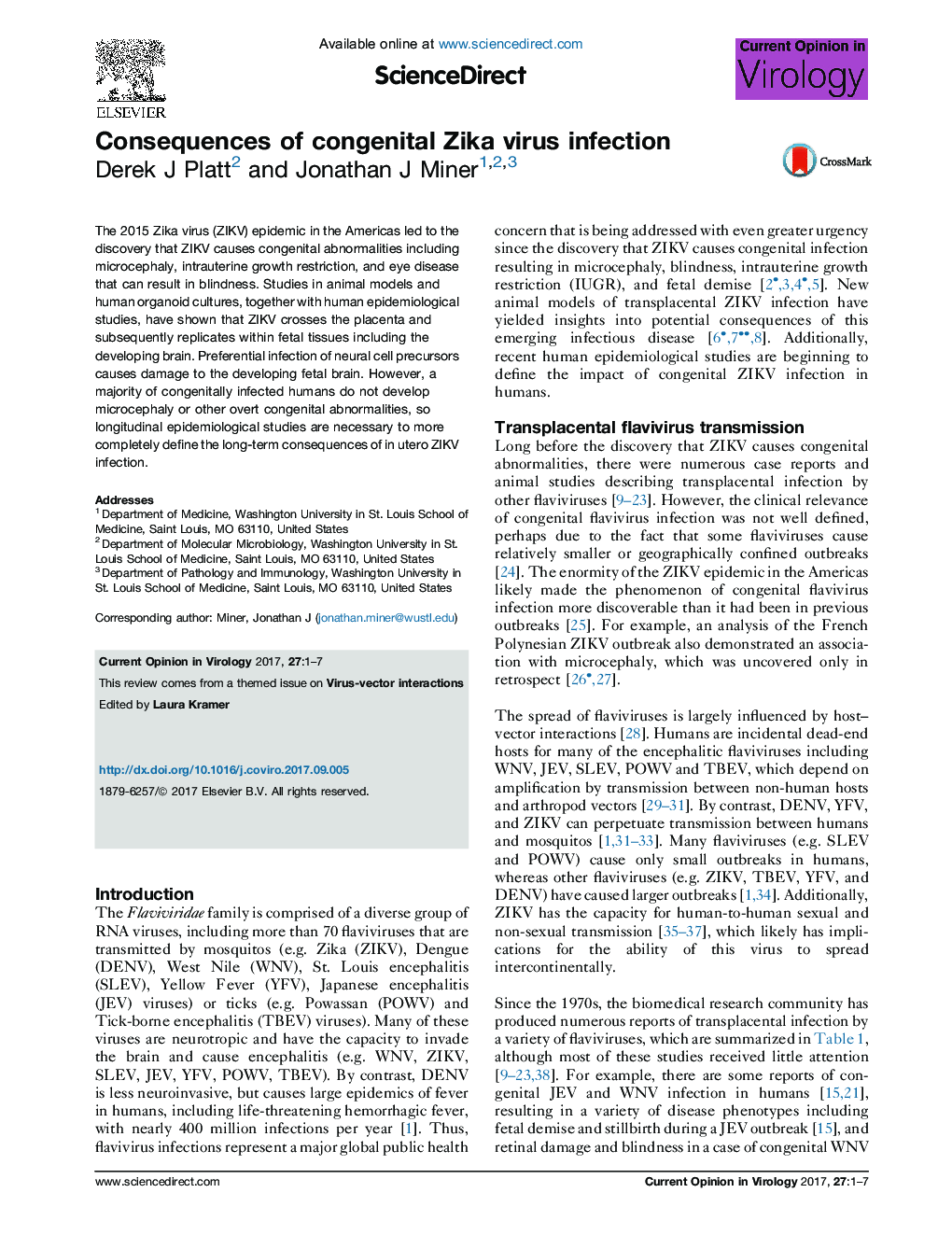| Article ID | Journal | Published Year | Pages | File Type |
|---|---|---|---|---|
| 8506614 | Current Opinion in Virology | 2017 | 7 Pages |
Abstract
The 2015 Zika virus (ZIKV) epidemic in the Americas led to the discovery that ZIKV causes congenital abnormalities including microcephaly, intrauterine growth restriction, and eye disease that can result in blindness. Studies in animal models and human organoid cultures, together with human epidemiological studies, have shown that ZIKV crosses the placenta and subsequently replicates within fetal tissues including the developing brain. Preferential infection of neural cell precursors causes damage to the developing fetal brain. However, a majority of congenitally infected humans do not develop microcephaly or other overt congenital abnormalities, so longitudinal epidemiological studies are necessary to more completely define the long-term consequences of in utero ZIKV infection.
Related Topics
Life Sciences
Immunology and Microbiology
Virology
Authors
Derek J Platt, Jonathan J Miner,
